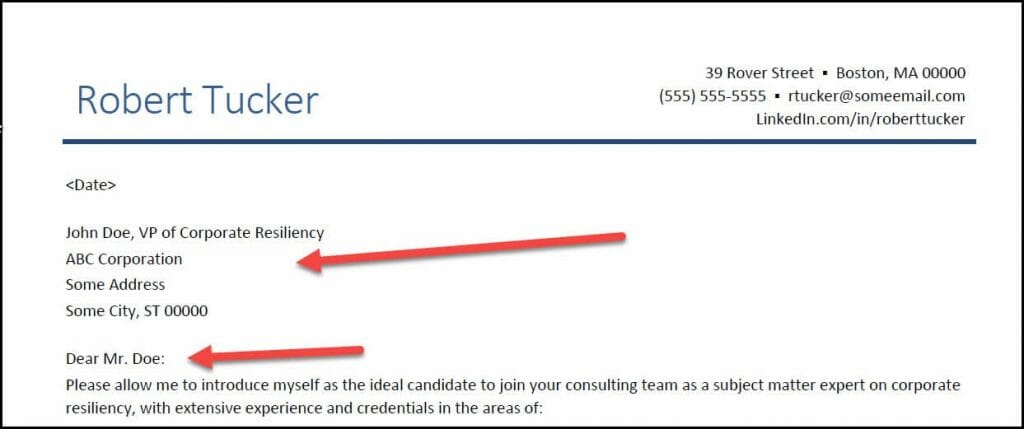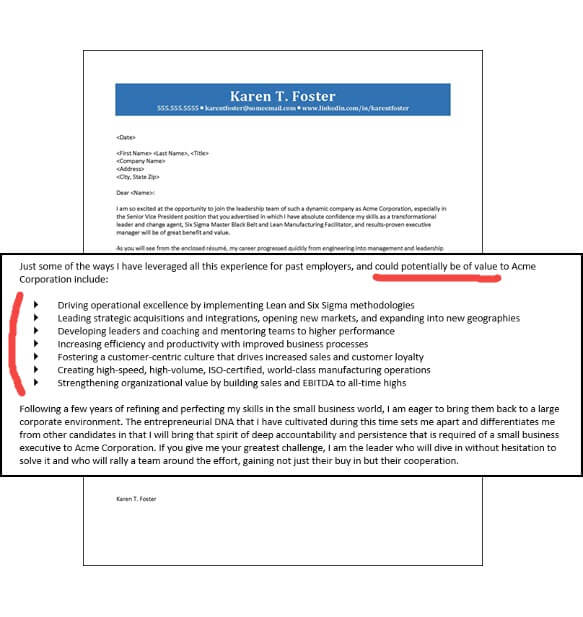
As the old saying goes, you only get one chance to make a first impression. Many job seekers find the question of how to write a cover letter a vexing one. But it is also an important one! A cover letter is your introduction to a potential employer. It’s your chance to make a good first impression. It shows off your good points, putting you in the best light while respectfully requesting a meeting. Understandably then, a well-written cover letter is one of the most important weapons in your arsenal, and knowing how to write a cover letter that stands out is an essential skill. Let’s look at some tips on writing an effective cover letter.
-
Know Your Function
Know the reason for writing a letter. Your resume cover letter needs to provide an intriguing introduction that prompts a potential employer to set up an interview with you. It needs to showcase your qualifications and point out why you are the person for the job to which you are applying. Most importantly, it should clearly state why the company should hire you.
-
Set Up a Venn Diagram
Sometimes it’s hard to organize your ideas. You may be applying to multiple jobs, each of which requires a unique set of skills. Creating a Venn diagram for each employment opportunity or each company you are applying to can help you organize your thoughts and visualize why you are a good fit for each job. This can be your blueprint for what to include in your cover letter. To determine which skills you need to focus on (in both your resume and your letter!), look at the job posting for keywords and phrases that are used to describe what their ideal employee would look like.
Place your skills and experience in one circle, and the skills and experience that they are looking for in another circle. The spot where the lists overlap is where you should focus your attention. The accomplishments and expertise that are listed in that shared space are the very things that you need to highlight in your cover letter.

But don’t ignore the outlying skills. Put on your thinking cap and see if you can come up with experiences or accomplishments that you have had, that show you still have the desired skills. For example, although you may not have the desired degree, perhaps you have five years of work experience that illustrates you have the required knowledge and the proven ability to put it to practical use.
-
Do Your Homework
As we’ve said before, each position you are applying for may (probably will!) require a unique set of skills. That’s why it’s so important to research the company and position for which you are applying. Many job applicants fail to do this. Without this research, you can be sure that your cover letter and resume will quickly end up in the pile of rejections. Putting in the time and effort to research that company’s core values, strengths, weaknesses, opportunities, challenges, and requirements will give you a leg up on the competition.
-
Be Precise and Show Foresight
Know the contact person’s title and name and then address your cover letter accordingly; if you’re not sure who the hiring manager is, find out. LinkedIn or other social media can be helpful for this research. We live in an information age; there can be no excuse for dropping the ball on this one small point.

When possible, address your cover letter to a specific person.
The point of your cover letter is to secure an interview, so be sure that your letter is clear and to the point. Just like an advertisement that compels you to “Call now,” you need to give your cover letter a call to action, usually in the closing paragraph. Supply your contact information, including a phone number and email address, and let them know that you are available for an interview.
-
Words Are Key
Remember those keywords that you looked for in the job description? Well, here is your chance to use those. Those keywords and phrases that you gleaned should appear in your cover letter to describe your experiences and skills. When you use industry keywords, it shows that you have intimate knowledge of and a passion for the field.
Using the same or similar keywords used in the job posting also makes it clear that you read the job announcement and gave serious thought to the ways your qualifications aligned with the employer’s needs. It might not surprise you to know that most job applications are made by people who send their resume to almost every opening they see, regardless of whether the position is a good fit for them or not. Simply using language that makes it crystal clear that you are sincerely interested in the position and have given real thought to the value you would add in the position will make your application stand out.

It is almost as important to include relevant keywords in your cover letter as in your resume.
-
Don’t Get Too Cocky
When it comes to showcasing your strong points, you walk a fine line between explaining your qualifications and explaining them in a way that indicates how they will be beneficial to the employer. Look over what you have written and wherever you see a sentence that begins with “I” or “my” work at rephrasing it so that it reflects the company. Use the words “you,” “yours,” and the name of the company. Emphasize how you will meet the company’s needs, help them achieve goals, and assist them in overcoming challenges. This will show that you are the best candidate for the job without tooting your own horn in a self-centered way.
-
Focus on the Benefits
When an employer considers a prospective employee, they look not only at their qualifications but also whether they would be a good overall fit with the company. In other words, they want to know how hiring you will be of benefit to the company. Be sure to communicate exactly how and why you would be of value to their company. Let them know how you will address their needs and the types of returns they can expect from their investment in you as an employee.

Write a cover letter focused on the value and benefits you offer the employer.
-
Choose Your Words With Care
Your writing says a lot about you, so put a little time and effort into crafting your cover letter. Don’t be afraid to show a little personality.

Don’t be afraid to show your personality and promote your personal brand as this job seeker did in the opening to his cover letter.
When you explore how to write a cover letter, take the time to assure that your first impression is a favorable one. Do your homework, craft your words carefully, and know in what ways and why you fit with the company. This is your opportunity to shine and ultimately land that new job.
And, one final tip. Take the time to properly structure your cover letter. Learn the standard parts of a letter such as a date line, inside address, salutation, closing, and enclosure notation, and how to format them. If all of this sounds confusing to you, you aren’t alone. Luckily, there are good quality cover letter templates available that will be of great help. You may also find it helpful to look at sample cover letters.









